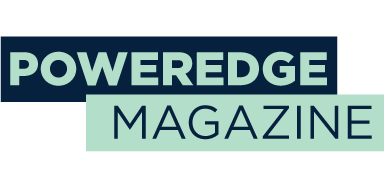The internet is a vast digital landscape, but beyond the surface-level sites accessed through conventional browsers lies a hidden domain known as the Dark Web. This secretive corner of the internet, accessible only through specialized software like Tor (The Onion Router), has gained notoriety as a hub for illicit activities, including cybercrime. While it does serve legitimate purposes, such as protecting privacy and aiding journalists in oppressive regimes, the Dark Web is also a thriving marketplace for illegal goods and services.
What Is the Dark Web?
The Dark Web is a subset of the Deep Web, which consists of all internet content not indexed by search engines. Unlike the Deep Web, which includes mundane content like academic databases and private company networks, the Dark Web is intentionally hidden and requires anonymity-focused tools to access. Websites on the Dark Web use encrypted networks and are often hosted on .onion domains, making them difficult to trace.
Cybercrime Marketplaces
One of the most alarming aspects of the Dark Web is its role as a marketplace for illegal goods and services. Similar to legal e-commerce platforms, cybercriminals operate anonymous marketplaces where users can buy and sell illicit items. Some of the most common activities include:
- Illegal Drugs: Various online drug markets allow users to purchase narcotics anonymously using cryptocurrencies like Bitcoin and Monero.
- Weapons and Explosives: Firearms, ammunition, and even explosives are available for sale, often circumventing legal regulations.
- Stolen Data: Personal information, including credit card details, bank account credentials, and login data, is frequently traded on the Dark Web.
- Hacking Services: Cybercriminals offer hacking-for-hire services, ranging from website defacement to corporate espionage.
- Fraudulent Documents: Fake passports, driver’s licenses, and other forged documents can be purchased easily.
Cryptocurrency and Anonymity
The Dark Web thrives on the anonymity provided by cryptocurrencies. Bitcoin was initially the primary currency, but newer privacy-focused cryptocurrencies like Monero and Zcash have gained popularity due to their enhanced security features. These digital currencies enable transactions without revealing the identities of buyers and sellers, making it difficult for law enforcement to track illicit financial exchanges.
Law Enforcement Crackdowns
Despite its hidden nature, the Dark Web is not beyond the reach of law enforcement agencies. Governments and cybersecurity experts continuously work to dismantle criminal networks operating in this underground space. Operations such as the takedown of Silk Road, a notorious Dark Web drug marketplace, and the arrests of cybercriminals running AlphaBay and Hansa Market demonstrate that authorities are actively combating these illegal activities. However, new marketplaces quickly emerge to replace those that are shut down, creating a persistent challenge for law enforcement.
The Future of the Dark Web
While the Dark Web remains a significant cybersecurity concern, advancements in monitoring tools and digital forensics are improving law enforcement’s ability to track and dismantle criminal operations. However, as technology evolves, so too do the tactics of cybercriminals. Governments, cybersecurity experts, and ethical hackers must continue working together to mitigate the threats posed by the Dark Web.
Conclusion
The Dark Web is a double-edged sword—offering privacy benefits for those who need it while also facilitating cybercrime on an unprecedented scale. As authorities and security agencies fight to curb its illegal activities, the ever-changing nature of the Dark Web ensures that it will remain a battleground in the fight against cybercrime. Increased awareness, stronger cybersecurity measures, and ongoing law enforcement efforts are essential in addressing the dangers lurking in this hidden part of the internet.

